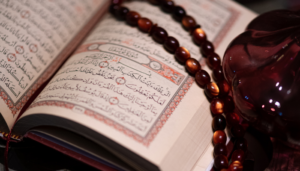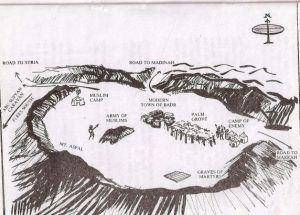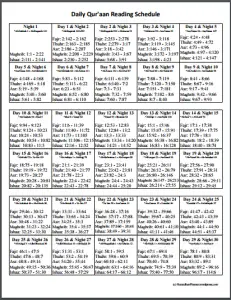Notes from Surah Al Nisa-“the fourth chapter of Quran”
Ramadan Kareem.
We make so much effort in our study to Pass the exams of our School and Colleges.But hardly do we make the same effort in reading Quran and understanding its message.
This Ramadan, I have made an effort to take notes from the chapters of Quran. Notes helps in quick reference and act as a mind Map. Today, I would like to share my notes from Surah Al Nisa which is the Fourth Surah of Quran. With the simple notes from Surah Nisa, I wish to share the lessons I learnt from Quran and the Quranic Verses which has touched me the most. May this help us increase in productivity and guide us to be a better Muslim.
Topics Covered in Surah Al Nisa
In Surah Al Nisa, following topics are discussed –
1-1 Creation of mankind
2-2 Property of the orphans
3-3 Restrictions on number of wives
4-4 Obligation of dowry
5-5 Do not trust property to feebleminded people
6-6 Train the orphans to manage their properties
7-10 Laws of inheritance
11-11 Prescribed shares in inheritance
12-12 Inheritance of spouse’s property
13-14 Commandment to abide by the limit of Allah
15-16 Initial order relating to the punishment for women guilty o fornication
17-18 Acceptable vs Unacceptable repentance
19-19 Women should not be treated as a part of Estate
20-21 Do not take dowry back from women
22-22 Prohibition from marring the wife of one’s father
23-23 Women that are prohibited for marriage-“Mahram” relations
24-24 Prohibited and permitted marriages continued
25-25 Permission for marriage with slave girls
26-28 Allah wishes to guide and forgive
29-30 Respect the ownership of one another’s properties
31-32 Avoid heinous sins and do not be jealous
33-33 Laws of inheritance are fixed
34-35 Men are given authority over women and Corrective measures for disobedient women and Arbitration in family disputes
36-38 Huquq-al-Ibad (rights of other human beings)
39-42 Witnesses of the Rasools on the Day of Judgement
43-43 Prohibition of drinking liquor-2nd Order and Tayammum-a substitute for ablution
44-46 Behavior of the People of the Book
47-50 Invitation of Iman to the People of the Book and Mushrikin will not be forgiven
51-55 People of the Book tend to take side of Shaitan
56-59 Fate of the unbelievers and the believers and Who should the believers obey?
60-63 Hypocrites’ attitude towards the decision of the Prophet
64-68 One who disputes the decision of the Prophet is not a believer
69-70 Believers will be in excellent company in the hereafter
71-74 Be prepared for armed conflict (Jihad)
75-76 Make Jihad to help the oppressed
77-79 Fear Allah and not the people and There is no escape from death
80-81 Obedience of the Rasool is in fact the obedience of Allah
82-84 Proof of Al-Quran being the Divine revelation and report the important news to responsible persons
85-87 Respond to greetings with even better greetings
88-91 Fight against hypocrisy and hypocrites
92-93 Punishment for killing a believer and laws of bloodwit
94-94 Investigate properly before jumping to conclusion
95-96 Ranks of Mujahideen over Non-Mujahideen
97-100 Oppressed should migrate if possible and Reward for migration in the cause of Allah
101-104 Salat-al-Qasr, Shortening of Salah during travel and Salah in the state of war and Salah is obligatory at its prescribed times
105-112 Establish justice based on Divine guidance and Warning against Slander and against falsely charging innocents
113-115 Allah’s special favors to the Prophet and Prohibition of secret counsel and its limited exception
116-121 Shirk is and unforgivable sin and Pledge and Promises of Shaitan
122-124 Promise of Allah-who can be truer than Allah in promise?
125-126 No one is better than a Muslim
127-130 Establishment of justice for women
131-134 Have fear of Allah in your dealings
135-135 Stand firm for justice
136-141 Believers are required to believe wholeheartedly and Boycott un-Islamic gatherings and Hypocrites have double standards
142-147 Characteristics of hypocrites and the acts of hypocrisy and Hypocrites will be in the lowest depths of hellfire
148-152 Do not utter evil words and Do not draw a line between Allah and His Rasools in obedience
153-159 Jews are habitual sinners and violators of Allah’s commandments and Jesus was neither killed nor crucified
160-162 Punishment to Jews for their iniquities and Their only salvation is to become Muslims
163-166 This Quran carries the same message as was sent to Noah, Abraham, Moses and Jesus and Al-Quran’s authenticity is verified by Allah Himself
167-171 Believe in this authentic revelation if you want to attain felicity and Stop saying “Trinity” Allah is the One and Only Deity
172-173 Jesus was a Prophet and worshipper of Allah
174-175 Mankind is asked to believe in the message of Al-Quran
176-176 Legal decision relating to the inheritance of childless persons
Discussion of Inheritance in Surah Nisa
1. It is reported in a tradition that after the Battle of Uhud the wife of Sa’d b. Rabi’ brought her two daughters to the Prophet (peace be on him) and said: ‘O Messenger of God! These are daughters of Sa’d who was with you in the Battle of Uhud, where he was martyred. The girls’ uncles have seized the whole property and left nothing for them. Who will now marry these girls?’ It was after this incident that these verses were revealed.This is the first general rule in connection with inheritance, viz., that the share of the male should be double that of the female. Since Islamic law imposes greater financial obligations on men in respect of family life and relieves women of a number of such obligations, justice demands that a woman’s share in inheritance should be less than that of a man.
2. The same applies in the case where there are two daughters. If the deceased leaves only daughters, and if there are two or more daughters then they will receive two-thirds of the inheritance and the remaining one-third will go to the other heirs. But if the deceased has only one son there is a consensus among jurists that in the absence of other heirs he is entitled to all the property and if the deceased has other heirs, he is entitled to the property left after their shares have been distributed.
3. If the deceased leaves issue each of his parents will receive one-sixth of the inheritance irrespective of whether the issue consists either only of daughters, only of sons, of both sons and daughters, of just one son or just one daughter. The remaining two-thirds will be distributed among the rest of the heirs.
4. If there are no other heirs than the parents, the remaining two-thirds will go to the share of the father; otherwise the two-thirds will be distributed between the father and other heirs.
5. In the case where the deceased also has brothers and sisters the share of the mother will be one-sixth rather than one-third. In this case the sixth that was deducted from the share of the mother will be added to that of the father, for in this circumstance the father’s obligations are heavier. It should be noted that if the parents of the deceased are alive, the brothers and sisters will not be entitled to any share in the inheritance.
6. The mention of bequest precedes the mention of debt, for although not everyone need be encumbered with debt it is necessary that everyone should make a bequest. (However, other Mufassirun (exegetes) regard making a bequest as a discretionary act – Ed.) As for legalities, there is consensus among Muslims that the payment of debts takes precedence over the payment of bequests, i.e. if the deceased owes a debt and also leaves a bequest, the debt will first be paid out of the inheritance, and only then will his bequest be fulfilled.
7. Allah Says :You do not know which of them, your parents or your children, are more beneficial to you. But these portions have been determined by Allah, for He indeed knows all, is cognizant of all beneficent considerations
8 . Whether a man has one wife or several wives the share of the wife/wives is one-eighth of the inheritance when the deceased has issue, and one-fourth when he has no issue. The share of the wives, whether one-fourth or one-eighth, will be distributed equally among them.
9 . The remaining five-sixths or two-thirds of the inheritance goes to the legal heirs, if any. Where there are no legal heirs, the person concerned is entitled to make a bequest with regard to the remaining part of the inheritance. Commentators are agreed that the sisters and brothers mentioned here mean half-brothers and half-sisters, i.e. those who have kinship with the deceased on the mother’s side. Injunctions affecting full brothers and sisters, and half-brothers and half-sisters on the father’s side are mentioned towards the end of the present surah.
10.’Bequests which cause injury’ are those that entail depriving deserving kin of their legitimate rights. Similarly, the debt which causes injury is the fake debt which one falsely admits to owing, and any other device to which one resorts merely in order to deprive the rightful heirs of their shares in inheritance. This kind of injury has been declared to be a major sin in a tradition from the Prophet (peace be on him). According to another tradition the Prophet (peace be on him) said that even if a man worked all his life, like the men of Paradise, yet ended his life’s record by making a wrongful bequest, he would be consigned to Hell. (Ibn Kathir, vol. 2, p. 218.)
11 .Allah says :This is a commandment from Allah; Allah is All-Knowing, All-Forbearing.This is a terrifying verse in which those who either tamper with God’s laws of inheritance or violate the legal bounds categorically laid down by God in His Book are warned of unending punishment.
Also discussed is the Legal decision relating to the inheritance of childless persons-Verse 176
They ask you for a legal verdict. Say: “Allah directs (thus) about Al-Kalalah (those who leave neither descendants nor ascendants as heirs). If it is a man that dies, leaving a sister, but no child, she shall have half the inheritance. If (such a deceased was) a woman, who left no child, her brother takes her inheritance. If there are two sisters, they shall have two-thirds of the inheritance; if there are brothers and sisters, the male will have twice the share of the female. (Thus) does Allah makes clear to you (His Law) lest you go astray. And Allah is the All-Knower of everything.”
Surah Nisa also mentions about the Women who are forbidden to Marry so you can know who your mehram are
Allah swt has prohibited 14 classes of women, 7 due to blood relationship, and 7 for others.
Mehram due to blood relationship are:
1. Mothers: every female ancestor for you no matter how high her level is (note that she might on the side of your father too, for example, your father’s mother).
2. Daughters: every female descendant of you no matter how low her level is (again, note that she might be on the side of your son, for example, your son’s daughter).
3. Sisters: every female that share you your father or mother (or both of them)-Full sisters and half sisters.
4. Aunts: both Sisters of every male ancestor for you (even on the side of your mother, such as the sister of your mother’s father),
5.and Sisters of every female ancestor for you (even on the side of your father, such as the sister of your father’s mother).
6. Nieces: every female descendant of your brothers and sisters, no matter how low her level is (this count 2 out of 7). This completes the list of women prohibited because of blood relationship.
7. Milk Mother :There is consensus among Muslims that if a boy or girl is breast-fed by a woman, that woman attains the status of mother, and her husband the status of father. It is forbidden to marry relatives through milk where the degree of relationship is such as /to constitute a bar to marriage in the case of blood-relations. The basis of this rule is the saying of the Prophet (peace be on him): ‘Whatever is rendered prohibited by descent (nasab) is likewise rendered prohibited by breast-feeding.’ (Bukhari, ‘Shahadat’, 4, 7,13,14; Muslim, ‘Rida’ah’, 1-14,26-30; etc. – Ed.)
Now we come to those Mehram because of affinity, they’re:
8. Wife’s mothers: every female ancestor of the wife. And they become prohibited just if the marriage contract is made (even before any intercourse).
9. Wife’s daughters: every female descendant of man’s wife from another husband. At the condition of making an intercourse with this wife, i.e, marriage contract is not enough to prohibit these daughters, an intercourse is needed to make the prohibition applied.
10. Daughters in law: the wife of any male descendant, no matter how low her level is.
11. Milk Sons’ wives: wives of man’s milk sons (the rule of milk prohibition applies here).
12. Foster Children born of your wives with whom you have consummated marriage .
13. Sisters of current wives: a man is not allowed to marry two sisters at the same time, if he marry a woman, then all of her sisters are temporarily prohibited for him. If she die, or they divorce, then her sisters become un-prohibited for him, he can marry any of them (after the divorce period عدة of the wife is over).
14.And also forbidden to you are all married women (muhsanat) except those women whom your right hands have come to possess.
Sources: Tafseer Al Qurtubi, Ahkam Al-Quran by Ibn Arabi, and Ahkam Al-Quran by Alkia Alharrasi (may Allah be merciful to them all). Especially Tafseer Al Qurtubi 5 [105-134].
My favourite Verses from Surah Al Nisa
My favourite Verses from Surah Al Nisa are :-
Quran (4:40)اLo! Allah wrongeth not even of the weight of an ant; and if there is a good deed, He will double it and will give (the doer) from His presence an immense reward.
Quran (4:80)Whoso obeyeth the messenger hath Allah, and whoso turneth away: We have not sent thee as a warder over them.
Quran (4:82)Will they not then ponder on the Qur’an? If it had been from other than Allah they would have found therein much incongruity.
Quran (4:86)When ye are greeted with a greeting, greet ye with a better than it or return it. Lo! Allah taketh count of all things.
Qur’an – 4:18 The forgiveness is not for those who do ill-deeds until, when death attendeth upon one of them, he saith: Lo! I repent now; nor yet for those who die while they are disbelievers. For such We have prepared a painful doom.
Qur’an – 4:31 If ye avoid the great (things) which ye are forbidden, We will remit from you your evil deeds and make you enter at a noble gate.
Qur’an – 4:12 And whoso doeth good works, whether of male or female, and he (or she) is a believer, such will enter paradise and they will not be wronged the dint in a date-stone.
Quran (4-111)Whoso committeth sin committeth it only against himself. Allah is ever Knower, Wise.
Quran (4:135)O ye who believe! Be ye staunch in justice, witnesses for Allah, even though it be against yourselves or (your) parents or (your) kindred, whether (the case be of) a rich man or a poor man, for Allah is nearer unto both (them ye are). So follow not passion lest ye lapse (from truth) and if ye lapse or fall away, then lo! Allah is ever Informed of what ye do.
Quran (4:137)Lo! those who believe, then disbelieve and then (again) believe, then disbelieve, and then increase in disbelief, Allah will never pardon them, nor will He guide them unto a way.
These were the notes I took after reading full tafseer of Surah Al Nisa.You can check the notes of Previous Chapters :
Do feel free to share your own notes of the Ayats that influenced you the most.Stay well and remember us in your Duas.
Do feel free to share your own notes of the Ayats that influenced you the most.Stay well and remember us in your Duas.
Discover more from Islam Hashtag
Subscribe to get the latest posts sent to your email.






i am really inspired your knowledge sharing….
A ALLAH increased your knowledge..
GOD BLESS YOU MY DEAR SIR
Dear assalam o alikum its indeed a very good effort by u in simplfying the meanings..i wanted to copy for reference but i could not . Can i get i copy JazakAllah
Please tell me where I cld find such tafsir notes for the whole quran
Assalamualikum i want full notes from sureh an-nisa!
Can you please provide me.?
Walekum Assalam .In Sha Allah . In a day or two.